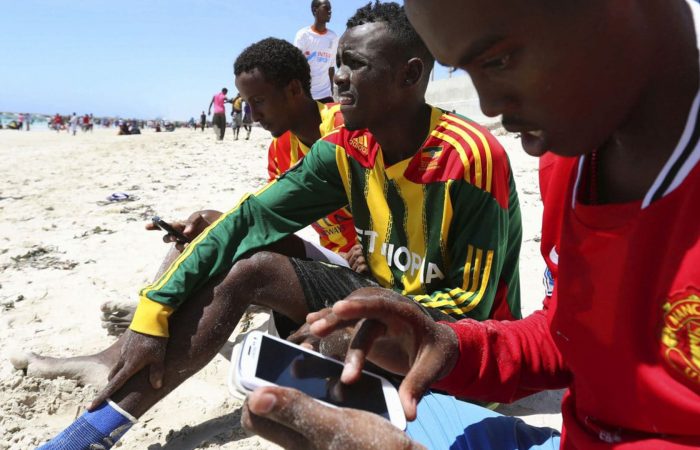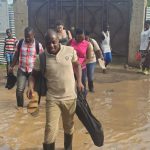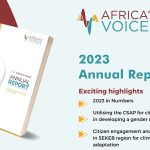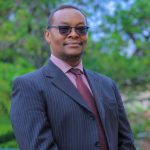Although many development and governance organisations understand the importance of engaging their target audiences, it has proven difficult to do so effectively – especially when communities are diverse, disparate or inaccessible.
Africa’s Voices began as a pilot research project in 2012, based at the Centre of Governance and Human Rights (CGHR) at the University of Cambridge. Developed alongside four years of intensive research on demand-driven governance in an era of digital communication technologies and new media environments, we pinpointed drivers of enhanced citizens’ voice through interactive radio (already very popular across Africa) and expert analysis of SMS data.
The research project allowed us to refine our knowledge on what works, and under what conditions, for citizen participation. We apply these key learnings to our current work to optimise participation in media forums, leading to the collection of plural voices and rich SMS data.
Understanding citizen participation
 During the pilot, vibrant radio debates were created in eight African countries, on topics such as early marriage, presidential terms, health, education, and fear of crime. Audience members were invited to text in their replies and opinions to questions, along with socio-demographic information. In the process significant lessons were learned about how to maximise citizen participation. These include:
During the pilot, vibrant radio debates were created in eight African countries, on topics such as early marriage, presidential terms, health, education, and fear of crime. Audience members were invited to text in their replies and opinions to questions, along with socio-demographic information. In the process significant lessons were learned about how to maximise citizen participation. These include:
- Develop context-friendly technological solutions
- Optimise for partner radio station capabilities and infrastructural obstacles
- Design audience-friendly question and answer formats
- Target motivation and incentivisation strategies
- Engage socio-political modes of public debate; tapping local ‘logics’ of political accountability.
A network of radio stations
We came to understand what works for citizen participation by partnering with eight radio stations in Uganda, Kenya, Zambia, Mozambique, Malawi, Ghana and Sierra Leone. New radio stations joined in a managed process, including stations in Tanzania, Malawi and Mozambique. The objective was to enable radio audiences to express their opinions in their natural form, and to engage in debates about issues that matter to them.
From Lusaka to Accra, from Kampala to Dakar, what do citizens think about waste management, education or electricity supply in their area? How do they evaluate public service delivery? What are their political and social priorities?
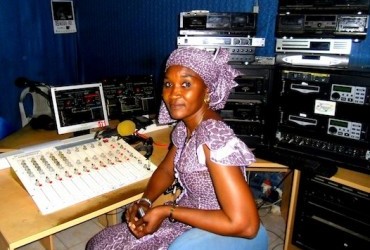
These radio stations were invited to ask monthly questions to their audiences, who replied through text messages. The questions—developed jointly by the radio stations and Africa’s Voices—were on ‘public goods’ themes and were clear, topical, and relevant to all audiences. The format and content of the questions were tested poll after poll to find the optimal methodology for Africa’s Voices.
A multi-lingual script introduced the context of the question and alluded to different sides of the debate. Audiences were encouraged to reply by sending anonymous SMS with their views.
SMS data collection and analysis
Text SMS messages were received in stations’ computers using FrontlineSMS and FreedomFone – open-source software tools for managing large volumes of SMS in computers with limited internet connection. The messages were exported to Cambridge to produce reports based on comparative figures and qualitative analysis of arguments. These were published on the CGHR website and shared with the stations with the aim of informing audiences and key stakeholders, from policy makers and development organisations to the wider research community.
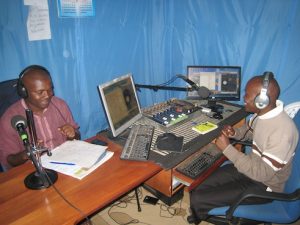
The analyses provided by CGHR academics shed light on differences and similarities between countries, underlining failures and achievements, and possible causes and solutions to governance and development problems. Radio producers could also engage governance actors, audiences, NGOs and leaders to radio programmes to respond to these views, enhancing accountability mechanisms and reinforcing the role of local radio stations as major venues of public debate.
The pilot research allowed us to test and develop an effective platform for citizen engagement and opinion analysis, which had the potential to benefit development organisations, radio audiences, broadcasters, academic researchers and others.
